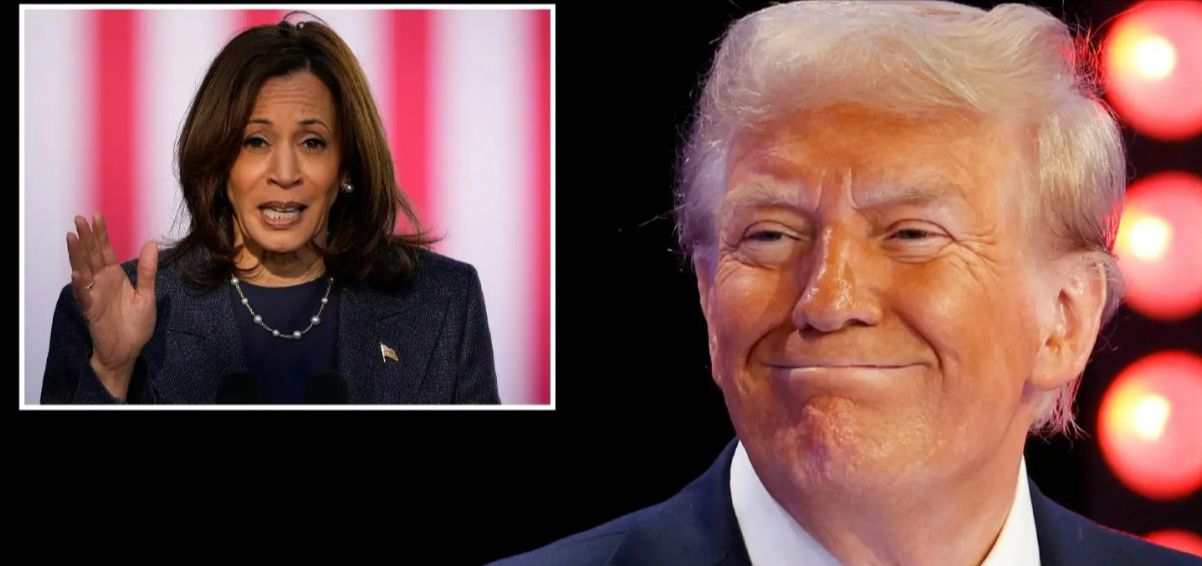Man Who Predicted Biden’s Drop Out Makes Kamala Prediction

As the November presidential election approaches, former Vice President Kamala Harris and former President Donald Trump are in a close race.
This situation has prompted economist and former CIA advisor Jim Rickards to share his insights on what a Harris presidency might mean for the country.
Rickards has pointed to several key indicators suggesting that if Harris becomes president, the U.S. economy could face significant challenges. These concerns arise as polling shifts heavily in Trump’s favor.
Rickards highlighted a few potential issues:
Market Volatility: The financial markets are already experiencing significant volatility, which reflects the uncertainty among investors. A Harris presidency could heighten these concerns, particularly if her policies are viewed as unpredictable or overly progressive, potentially leading to even more market instability.
Rising National Debt: With the U.S. national debt at record levels, Harris' potential policy initiatives, such as expanded social programs and infrastructure spending, could add to this burden. Without careful fiscal management, the increased debt could strain the economy and limit the government’s ability to respond to future economic challenges.
Inflation Pressures: Inflation is already a growing concern, and Harris might find it difficult to control rising prices. Her administration’s possible focus on wage growth and social equity could unintentionally fuel inflation, making it harder to maintain price stability without slowing down economic growth.
Deepening Political Division: The country is already deeply divided politically, and Harris’ presidency might intensify these divisions, particularly if her policies are perceived as favoring certain groups. This could lead to more gridlock in Congress, hindering efforts to pass essential legislation to stabilize the economy and address urgent issues.
With all these factors in play, a Harris administration would likely face a difficult and uncertain economic landscape.
Meanwhile, Trump has seen significant gains over Harris, gaining approximately 14 points among independents and 19 points among Latino voters.
According to recent polling from NPR/PBS News/Marist, Trump has overtaken Harris by three points among independents in a multi-candidate race, leading 49% to 46%. This marks a substantial improvement since August, when Trump trailed Harris by 11 points, 48% to 37%.
Robert F. Kennedy Jr., who had garnered 12% of the vote in an earlier survey, exited the race and endorsed Trump between the August and September polls. Additionally, Harris' post-nomination “honeymoon” period has started to fade.
In August, Trump led Harris by 15 points among Latino voters, 54% to 39%. Now, Trump’s lead has narrowed to four points, with 51% of the vote compared to Harris' 47%.
“Only single digits separate the candidates on most issues important to voters. But voters who value honesty overwhelmingly favor Harris, while those seeking strong leadership predominantly back Trump. Will this still hold true on Wednesday morning?”
According to the poll, nearly 70% of Americans plan to watch the upcoming debate, with 30% of registered voters saying it could influence their decision. However, 69% believe it probably won’t make a significant difference.
On Tuesday, Trump’s campaign received more good news from a stunning new survey showing him pulling ahead of Harris in North Carolina, a key battleground state.
The poll, which surveyed 1,042 likely voters, showed that 51% of North Carolinians plan to support Trump in the 2024 presidential race, while 46% back Harris.
Rasmussen Reports and American Thinker, a conservative online magazine, conducted the survey between October 9 and October 14.
This polling suggests Trump holds one of his largest leads in North Carolina just weeks before Election Day. The state has the potential to be a tipping point, and overall polling shows the contest between Harris and Trump to be one of the tightest this election cycle.
According to the Rasmussen poll, voters identified the economy as the top issue influencing their vote for president, followed by abortion and border security.
When asked to choose the most important issue for the next president to address—abortion rights, illegal immigration, rising prices, or protecting democracy—voters in the survey, released on Tuesday, selected immigration as their primary concern (29%), followed by rising prices (24%), protecting democracy (23%), and abortion rights (22%), according to Newsweek.
The majority of respondents (70%) said they want the next president to bring about a “major change.” Additionally, more than three-quarters (77%) of likely voters indicated that their support for a candidate is based on a positive preference rather than a desire to prevent the other candidate from winning.
Tracking from FiveThirtyEight shows Trump leading Harris by 0.9 points in statewide polls in North Carolina, with Trump at 48.2% and Harris at 47.3%, Newsweek reported.
In a Washington Post poll conducted between September 25 and September 29, which surveyed 1,001 registered voters, Trump led Harris by 3 points in North Carolina.
Meanwhile, an ActiVote poll conducted from September 7 to October 6, surveying 400 likely voters, showed Harris leading by 2 points, with 51% to Trump’s 49%.
If the Rasmussen poll is any indication, Trump’s support appears to have surged since Hurricane Helene hit the state, amid frustrations with the Biden-Harris administration’s slow FEMA response.
For the first time, a prominent election prediction model has shifted to “lean” toward Trump, after weeks of classifying the race as a “toss-up.”
This shift comes in response to new polling data showing Harris’ national lead narrowing or disappearing altogether.
Furthermore, several swing states now show Trump holding a slight edge in many of the battlegrounds that will decide the outcome of the election, according to the UK’s DailyMail.com.
The outlet teamed up with J.L. Partners to develop an election model that now gives Trump nearly a 63% chance of winning.